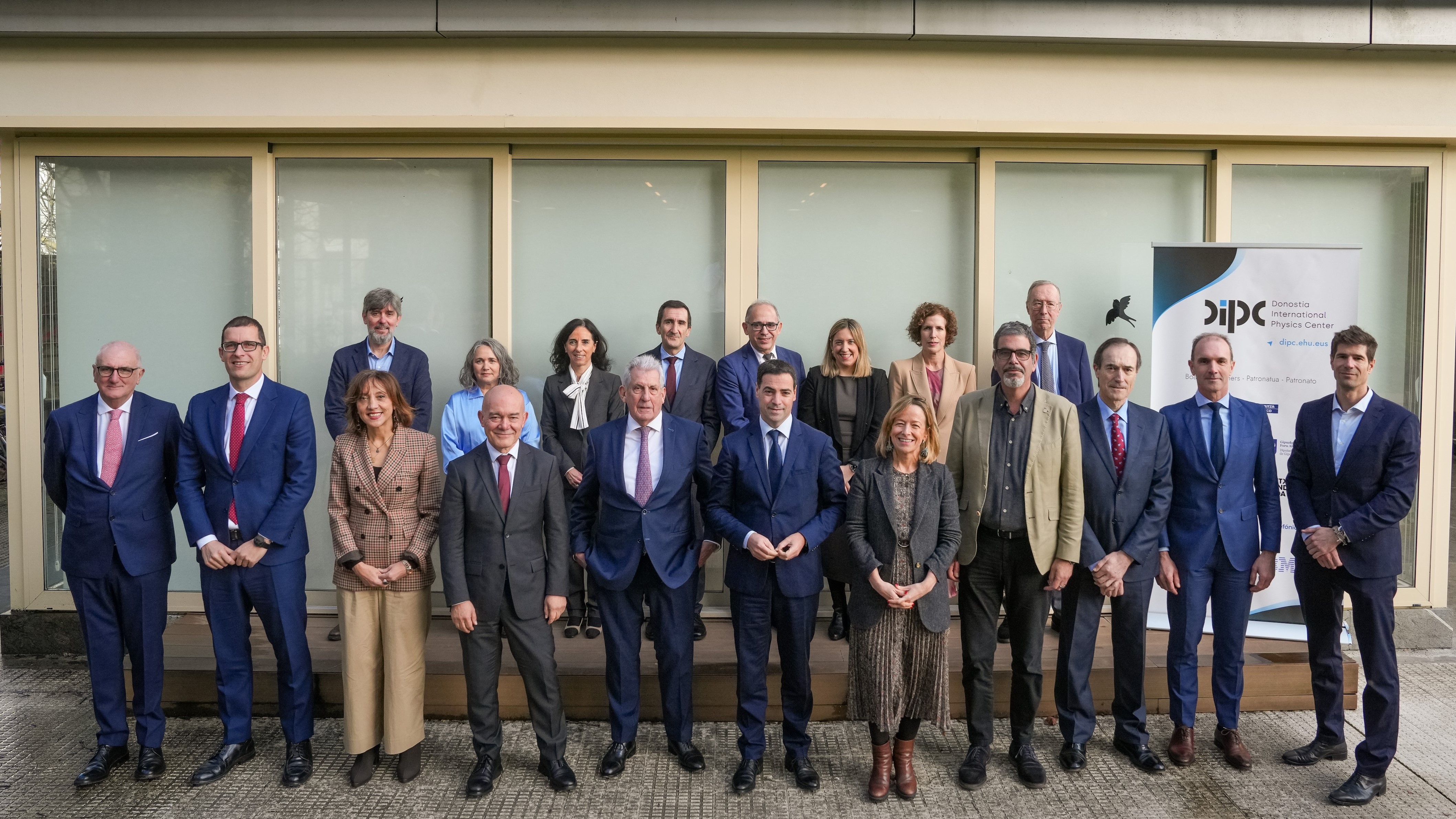
IBM has become a new member of the Board of Partners of the Donostia International Physics Center (DIPC), thus reinforcing close collaboration going back decades. In 2000, in fact, the first scientific lecture at DIPC’s opening ceremony was delivered by Heinrich Rohrer, Nobel Laureate in Physics and IBM researcher. Today, a quarter of a century later, this alliance culminated in the incorporation of IBM into DIPC’s Board of Partners; IBM is one of the world's largest technology multinationals and an international benchmark in fields such as materials science and computational science research. This decision reinforces IBM's commitment to the Basque Country and falls in line with the Basque Government's strategic commitment toward quantum technologies, promoted through Basque Quantum - BasQ and Ikerbasque. It should be noted that the IBM-Euskadi Quantum Computing Centre, announced for 2023, includes the installation of an IBM quantum computer in the Ikerbasque building, located a few metres from DIPC, further consolidating this synergy.
Today's meeting of DIPC’s Board of Partners, chaired by the Lehendakari (President of the Basque Autonomous Community Government) Imanol Pradales, included his distinguished speech in which he underlined the importance of public-private collaboration. ‘This union does not happen by chance. At least two conditions are necessary," he said, "such as a long-term and sustained commitment to science policy and an environment that favours the creation of centres of excellence such as DIPC, which position us at a global level, cultivate and attract talent and help us to connect with other places in the world”. The presence of the Lehendakari on DIPC's board of partners reaffirms the commitment of the new regional government to impact science, and underscores the importance of the cutting-edge research conducted by the Donostia-based center.
The president of DIPC Pedro Miguel Etxenike thanked the Lehendakari for attending and insisted that “an advanced society needs advanced research. The fact that today an international company of the stature of IBM has joined DIPC’s board of partners is the outcome of a job well done; both by our research community, which has managed to position the DIPC as a leading institution in various lines of research worldwide; and by the Basque institutions, both public and private, whose continuity in policies and a bold strategic commitment to science have been decisive in enabling the Basque Country to position itself in various fields at the forefront of science”. He also pointed out that “the relationship between DIPC and IBM has been fluid and fruitful for many years, but going forward, we want to make a qualitative leap in the scientific collaboration between our two organizations. A quantum leap”.
The president of IBM Spain Horacio Morell, present at the meeting as a new member of the board of partners, stressed that “it is an honor for IBM to join DIPC, an institution that represents scientific excellence, innovation and, above all, the power of collaboration to generate a global impact. Today I would like to highlight one of the cornerstones of our collaboration: our joint commitment to quantum computing. The future of the technology is open, and to move forward into this future it is essential to have collaborative ecosystems like the one we are building here”.
DIPC’s Board of Partners comprises representatives of public institutions and private organizations at the highest level. The Basque Government’s Department of Science, Universities and Innovation and the Department of Industry, Energy Transition and Sustainability, plus the University of the Basque Country (UPV/EHU), the Charter Provincial Council of Gipuzkoa, and the City Council of Donostia / San Sebastian, together with the Kutxa Fundazioa, the EDP Foundation, Telefónica and CAF, are also members, as IBM is as from today onwards.
The meeting was held at DIPC’s headquarters, where the partners were able to see the building works of the new DIPC building. With these new facilities DIPC will be taking a qualitative leap in its scientific activity, with greater diversification of its research lines and increased experimental activity. DIPC, which will be 25 years old next year, publishes more than 500 scientific articles each year and receives more than 25,000 citations. Today, it employs over 200 contract researchers from many different fields of science, as well as associate research staff, and also welcomes some 200 scientific visitors from various countries and continents each year. DIPC's current research projects include those relating to quantum technologies, supercomputing, artificial intelligence, particle physics, cosmology, advanced materials, photonics, solid state physics and nanoscience, as well as a new line of research in neurophysics.
.png)
